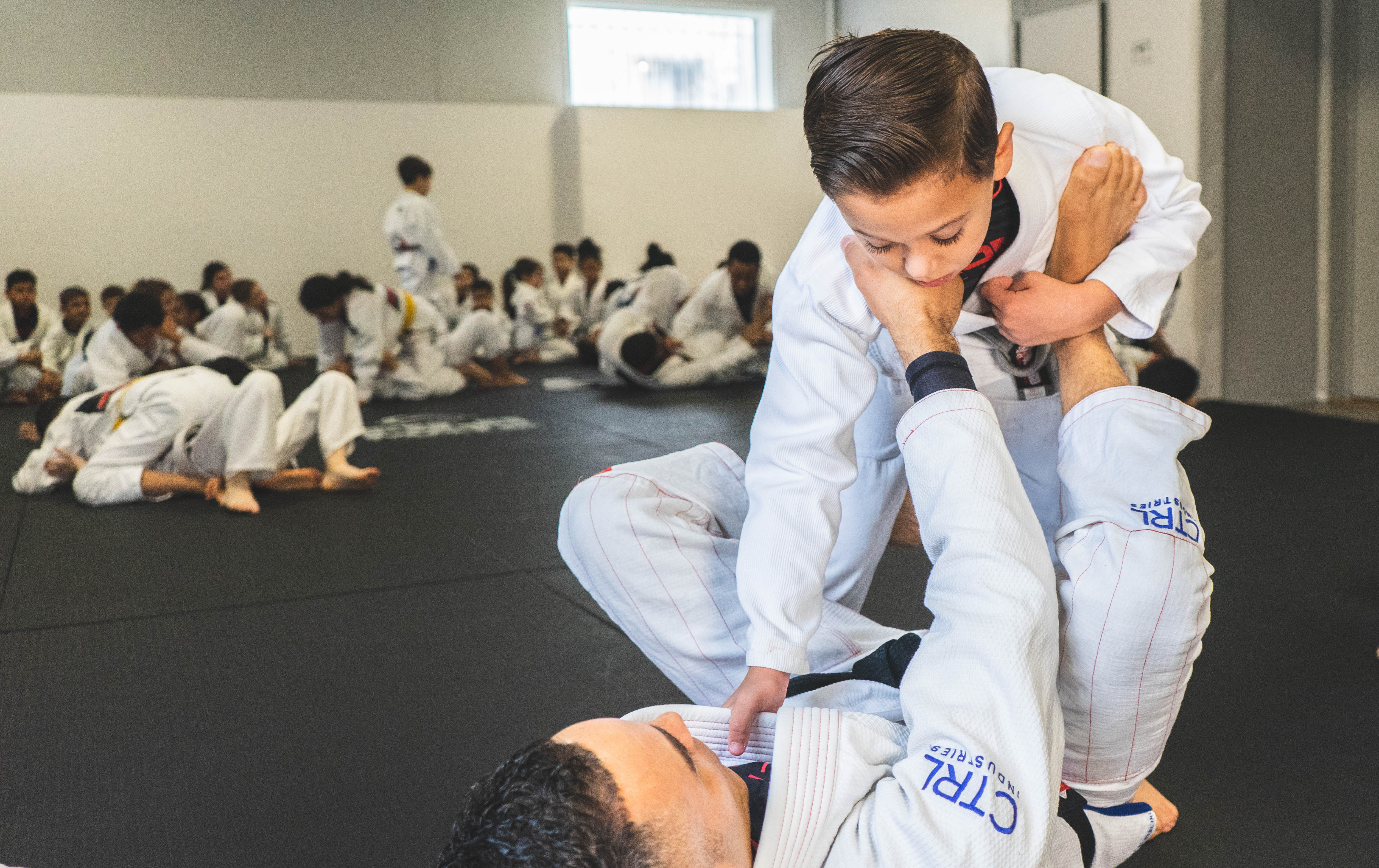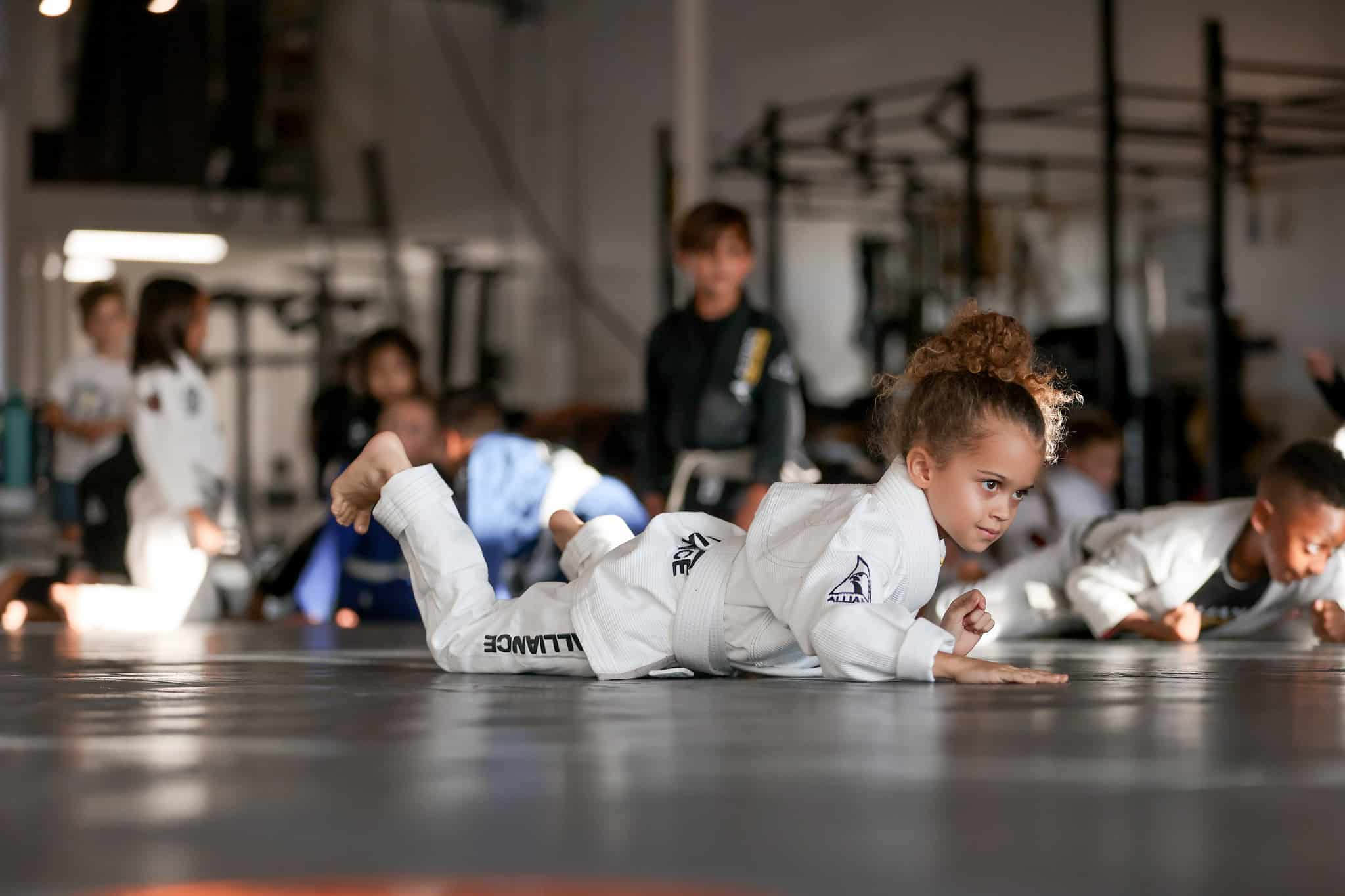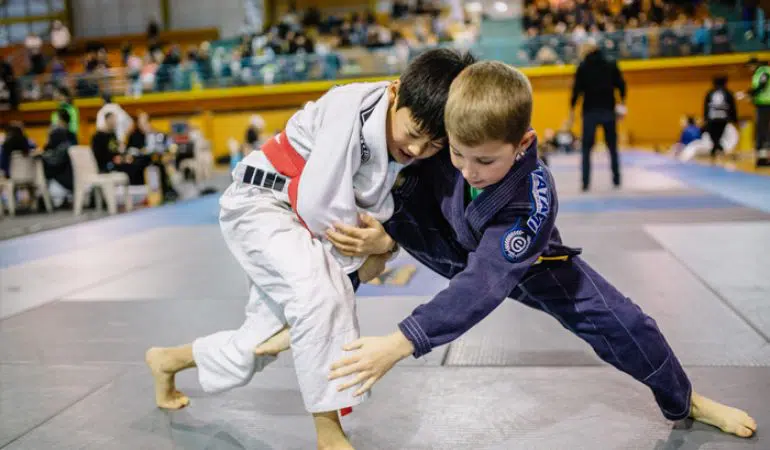How To Keep Your Kids Engaged in Jiu Jitsu
Keeping kids engaged in Brazilian Jiu Jitsu can sometimes feel like a puzzle. Maintaining your child's interest in Jiu Jitsu involves more than driving them to class everyday; it requires cultivating a love for the sport by striking a balance between motivation and independence, and finding the right academy and atmosphere that aligns with their goals.
Yes - I said THEIR GOALS. Before you even start to read further, remember this - Jiu Jitsu isn't for everybody and it's no different for kids, some will absolutely love it from day one, some may learn to love it over time, and others will never be all that into it - and that's okay too. As parents, we can support and help guide our children in the direction that they want to take, not the direction we want them to take - remember your goals are not always their goals.

Focusing on balancing parental involvement, recognizing each child's distinct path, and nurturing a positive training atmosphere is crucial. We'll talk about different leadership methods you as a parent can use to emphasize the enduring advantages of BJJ beyond mere physical conditioning and competitive achievements.
Understanding Children's Journey in BJJ
When kids first step onto the BJJ mats, they're not just learning BJJ or how to defend themselves, they're unknowingly starting on a journey of self-discovery and growth. The initial attraction often comes from wanting to "wrestle" with their friends, learning how to fight, or just seeking a fun way to stay active. However, as the seasons change, their passion might ebb and flow due to a multitude of factors.
The Initial Attraction to BJJ
Kids are naturally drawn to activities that promise adventure and excitement, especially when they look cool wearing an awesome kids BJJ gi. Jiu Jitsu offers both in spades, along with the opportunity to make new friends who share similar interests. Initially, it might also seem like a cool skillset to have - thanks partly due to its portrayal in media and perhaps stories of legendary fighters overcoming odds through sheer technique and willpower.
However, this honeymoon phase can change as challenges increase with advancing levels. What was once an exciting new venture becomes routine practice sessions where progress feels slow or even stagnant at times, or maybe they have even advanced at a faster pace than the rest of the class and it's not even challenging anymore. This is the time where parents and coaches should not only recognize but embrace these mood fluctuations to keep engagement high.
Finding The Right Balance
It's a tightrope walk for parents, guiding without shoving. The key? Understanding that encouragement doesn't mean pushing your dreams onto them. Think of Brazilian Jiu Jitsu as their adventure, not yours.
Start by setting realistic goals together and celebrating every victory, no matter how small. Adopting this method ensures spirits remain uplifted while the burden remains minimal. Keep in mind, it's their personal voyage through BJJ that matters most, nurturing a passion for the discipline instead of merely accumulating accomplishments on a checklist designed for grown-ups.
Last but not least, communication is crucial. Regular check-ins to gauge their feelings towards training can reveal much about their stress levels or potential burnout. Maintaining an ongoing and encouraging conversation helps make sure that Jiu Jitsu continues to be a passion, not merely another afterschool activity they've come to dread.
Recognizing Individual Paths
Jiu Jitsu isn't a one-size-fits-all journey, especially for kids. Like snowflakes in a blizzard, every child's path through BJJ is unique. Acknowledging this can be the difference between a kid falling in love with the sport or walking away from it.
Some children might be driven by the thrill of competition and the desire to succeed in tournaments, while others may simply enjoy making new friends and the fun of regular practice sessions. Additionally, some kids might have started Jiu Jitsu after being bullied at school and are there to learn real life bully prevention and self-defense skills.
Remember how we said your goals are not their goals? As parents it's natural that we want to set goals for our kids, but do so only once you've recognized which path they are on! Now the goals of the parent and the child are aligned, making it much easier for your child to succeed.
Cultivating a Positive BJJ Environment for Kids
Keeping BJJ Fun
We get it, the standard BJJ class schedule that consists of warm-ups, technique demonstration or drilling, followed by a small dose of live rolling can get stale over time for kids.
Remember when you were a kid? Everything was more fun as a game!

Image credit: Alliance Jiu Jitsu
With the exception of competition training, weaving in games, unique drilling sessions, or mock tournaments can sharpen their abilities while they won't even notice they're gaining knowledge. For example, 'shark tank' drills where one child faces multiple opponents in succession can be thrilling for both participants and those cheering from the sides.
Allowing Exploration of Other Interests
A well-rounded child is happier and more engaged in everything they do - including BJJ. Letting kids explore other interests alongside Jiu Jitsu fosters growth both on and off the mats. Whether it's soccer, music lessons, or art classes, or something else, these activities help develop different aspects of their personalities and abilities which can surprisingly enhance their performance in BJJ too.
Also consider what type of jiu jitsu training they like to do. Do they like training with their kids jiu jitsu gi, or do they mostly like training nogi?
Guiding Without Forcing
Walking the tightrope between guiding and pushing too hard is crucial when it comes to kids in Brazilian Jiu Jitsu. The way parents navigate their involvement is critical, as it can either foster or hinder a young one's path in BJJ. You're probably getting tired of hearing this by now, but some need to hear this more than others - your goals are not always their goals.
The Role of Coaches and Mentors
A good coach knows that every child has their own pace and style of learning. Acknowledging even the tiniest victories, they elevate self-assurance and sustain enthusiasm.
Beyond the techniques they show on the mat, coaches instill values like respect, discipline, and perseverance. These are the lessons that will extend far beyond the academy walls and will impact your children’s development positively as they grow.
Fostering an environment where questions are encouraged lets kids feel safe to express themselves. This openness leads to deeper understanding and connection with BJJ as both a sport and lifestyle choice. Ultimately, when coaches partner with parents respecting each child's unique path without undue pressure - everyone wins.
Building Resilience and Discipline
Jiu Jitsu teaches more than physical skills, it can instill a powerful mindset in kids. Learning how to become resilient at a young age will not only help your child in BJJ - but it's a crucial attribute for them to have throughout their life. Facing challenges becomes second nature, understanding that setbacks are merely opportunities for growth.

Their commitment to training and betterment highlights the importance of discipline. By participating in BJJ, kids learn that hard work and regular practice are key to advancement, instilling values of perseverance and determination that extend beyond the mat into their everyday lives.
Additionally, BJJ ingrains principles like esteem for peers and modesty in its practitioners. It’s not all about winning; it’s about growing stronger together as part of a community.
Conclusion
To successfully involve kids in Brazilian Jiu Jitsu, recognizing and nurturing their individual paths is key. Finding the perfect equilibrium between motivation and pressure is vital; excessive pressure can push them away, while insufficient guidance might leave them directionless.
Acknowledging every child's unique interests and allowing them to shape their learning is essential for fostering a positive, enjoyable atmosphere that encourages development. Finding the right academy and coaches are crucial in this journey, turning regular training into an enthusiastic activity with supportive, non-coercive guidance.
Oh, and always remember - your goals are not always their goals :)



































































































